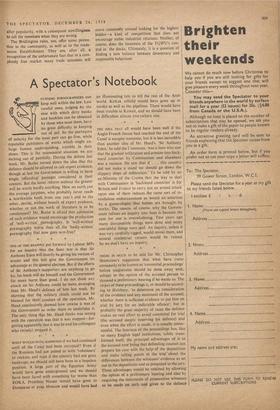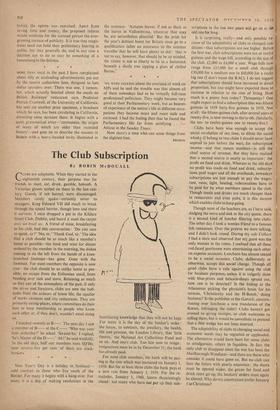THERE IS MUCH to be said for Mr. Christopher Shawcross's
suggestion that what have come ominously to be known as 'committal proceedings' before magistrates should be done away with, subject to the option of the accused person to demand a preliminary hearing if he wants to. The object of these proceedings is, or should be accord- ing to Halsbury, 'to determine on consideration of the evidence and any statement of the accused, whether there is sufficient evidence to put him on trial by jury for an indictable offence'; but in probably the great majority of cases the defence makes no real effort to avoid committal for trial (the accused simply reserving his defence) and even when the effort is made, it is usually unsuc- cessful. The function of the proceedings has, like so many English legal institutions, subtly trans- formed itself, the principal advantages of it to the accused noW being that defending counsel can prepare his case with the help of the depositions and make telling points at the trial-about the differences between the witnesses'• evidence as set out in the depositions and as presented to the jury. These advantages would be retained by allowing the option of a preliminary hearing and also by requiring the statements of prosecution witnesses to be made on oath and given to the defence before the option was exercised. Apart from saving time and money, the proposed reform would minimise for the accused person the ever- growing menace of publicity. It is true that magis- trates need not hold their preliminary hearing in public, but they generally do, and in any case a decision not to do so may be something of a boomerang to the defence.



























 Previous page
Previous page